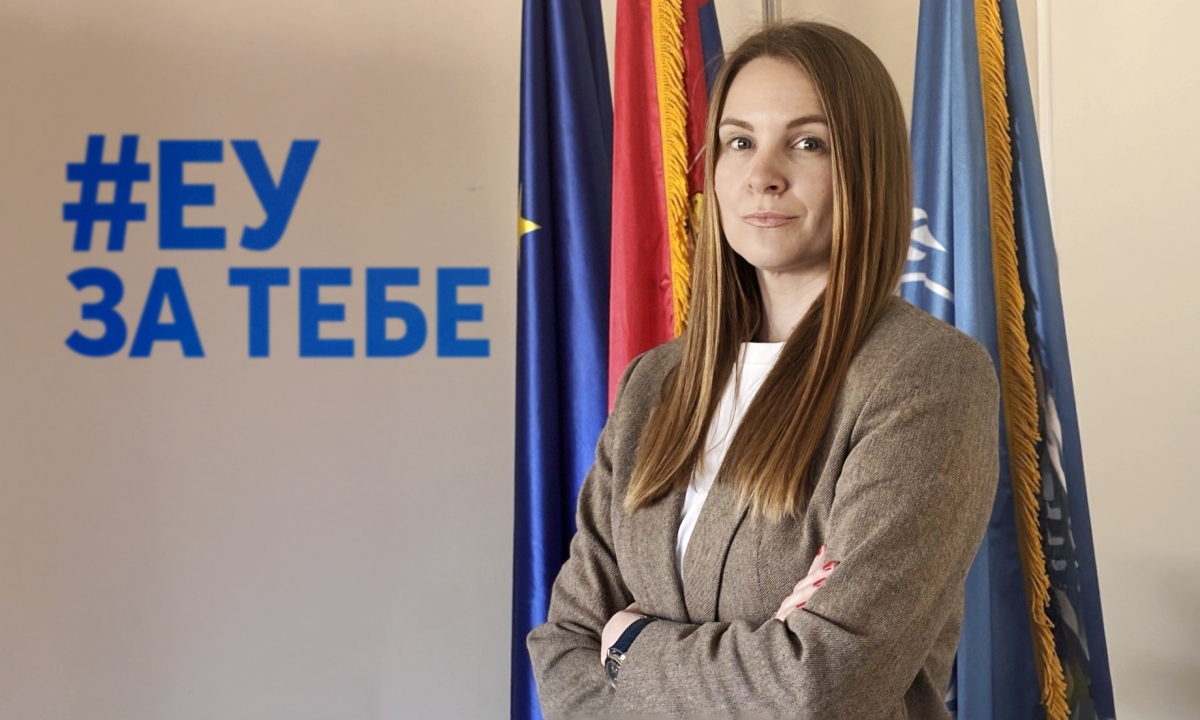Belgrade, 8 March 2025
We can do it: Empowering Women in Business
Women’s entrepreneurship is more than just business—it’s about resilience, innovation, and the power to transform communities. Over the years, financed by the EU and in close cooperation with the Ministry of Economy and the Ministry of European Integration, EU PRO Plus and its predecessor programmes have supported hundreds of women-led businesses, ensuring that access to finance, mentoring, and skills development is within reach.
With nearly 3.6 million Euros invested in 113 enterprises, the Programme has helped create 274 new jobs, 52% of which are held by women. These investments go beyond numbers—they represent new opportunities, stronger local economies, and a shift towards a more inclusive entrepreneurial ecosystem.
In this issue, we talk with key stakeholders to explore how targeted support has propelled women entrepreneurs forward, what challenges remain, and how Serbia’s business landscape continues to evolve. From direct financial support to mentorship and networking opportunities, the conversation sheds light on what it takes to build a thriving business as a woman in Serbia today.
1. The EU has consistently supported women’s entrepreneurship in Serbia through multiple programmes. Why is this a crucial area for intervention?
Women’s entrepreneurship is not just about business—it’s about empowerment, economic resilience, and community development. Despite their potential, women in Serbia still face challenges in starting and growing businesses, from accessing funding to balancing professional and personal responsibilities. The EU has recognised these barriers and, through various programmes, provided financial and technical support to ensure that women have equal opportunities to enter the business world and thrive. Supporting women entrepreneurs means strengthening the entire economy, fostering innovation, and ensuring that more diverse voices shape Serbia’s business landscape.
2. What has been the impact of EU PRO Plus in supporting women-led businesses?
Through EU PRO Plus, the EU has provided more than 2.7 million Euros in direct grants to micro and small enterprises, with over a third of the funds supporting businesses owned or led by women. This has enabled female entrepreneurs to acquire the necessary equipment, expand production, and access new markets. More importantly, beyond financial support, the Programme has provided training, mentoring, and business development services when necessary tailored to women’s needs. Many of the women we supported have reported not only business growth but also increased confidence and stronger professional networks—factors that are crucial for long-term success.
3. In addition to direct grants, how does EU PRO Plus help create an enabling environment for women entrepreneurs?
A key aspect of our approach has been strengthening business support organisations (BSOs) and institutions that provide services to entrepreneurs. Through EU PRO Plus, we have supported clusters, business incubators, and regional development agencies that offer specialised training, networking opportunities, and tailored advisory services for women-led businesses. We’ve also worked on fostering partnerships between women entrepreneurs, local self-governments, and financial institutions to improve access to funding and markets. The goal is to create a sustainable ecosystem where women not only start businesses but can continue to innovate and grow.
4. Women entrepreneurs often highlight the challenge of balancing business and family life. How has the EU support addressed this issue?
We recognise that women entrepreneurs frequently juggle multiple roles, which is why we’ve emphasised flexible support models. Many of the training sessions and mentoring programmes we funded were adapted to women’s schedules, ensuring they could participate without sacrificing their family responsibilities. We focused on remote mentoring and support adapting to beneficiary schedules to ease the burden. These interventions might seem small, but they make a significant difference in enabling women to stay engaged in business while managing personal obligations.
5. What are some success stories that stand out from this Programme?
There are many inspiring examples, but one that stands out is a small woman-owned textile business that, with EU support, expanded its production capacity and began exporting to the EU market. Another example is a young female entrepreneur who started an innovative eco-friendly packaging business and, with mentoring and funding, developed a strong brand now recognised across Serbia. These stories highlight how targeted support can transform small ideas into sustainable businesses that contribute to the local economy.
6. What is next for women’s entrepreneurship in Serbia? How can future programmes continue to support women in business?
Women’s entrepreneurship in Serbia is evolving, and the next step is to strengthen the support systems that help women balance business and family life. Many successful women-led enterprises thrive as family businesses, where the involvement of spouses, or children ensures continuity and long term growth. Future programmes should recognise and encourage this dynamic, fostering mentorship and peer support networks that help women navigate both business and personal responsibilities, because that is predominantly their reality.
Additionally, there is great potential in supporting women in essential professions such as dentistry, veterinary medicine, and education—fields that are particularly needed in smaller and rural communities. Strengthening access to tailored business training, digital skills and resources for women in these sectors will ensure they can establish and expand their practices sustainably.
We must not forget that economic development is inseparable from social development, and it is equally important to develop all other types of services, including social services, improving conditions for education, cultural and sports activities, as well as health and communal services. We can proudly say that with the support of the EU and the Ministry of European Integration through the EU PRO Plus programme, we have been working on this, creating an environment in which everyone, including women, can be socially and economically empowered.
And as a society we should recognise that investing in women means investing in stronger communities and a more resilient economy.
